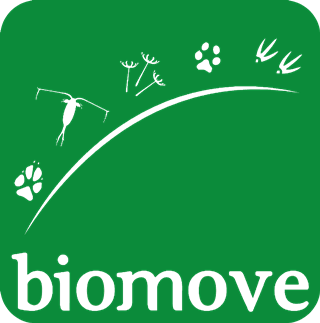The ASLQ is part of several networks and joint research activities.
TERENO

TERENO is embarking on new paths with an interdisciplinary and long-term research programme involving five Helmholtz Association Centers. TERENO spans an Earth observation network across Germany that extends from the North German lowlands to the Bavarian Alps. This unique large-scale project aims to catalogue the long-term ecological, social and economic impact of global change at regional level.
The interdisciplinary investigation of Global Change effects demands an adequate number of research sites with different characteristics and a sufficient replication in regions, which are already affected by Global Change or will sensitively react in foreseeable time, or in which extreme landscape changes take place. Therefore, in the framework of TERENO regional "terrestrial observatories" have been set up in selected and for Germany representative regions by integrating existing research stations and activities:
- The Eifel/Lower Rhine Valley Observatory (coordination: FZJ)
- The Harz/Central German Lowland Observatory (coordination: UFZ)
- The Bavarian Alps/pre-Alps Observatory (coordination: KIT)
- The German Lowland Observatory (coordination: GFZ)
These observatories are equipped with a combination of in-situ measuring instruments and ground-based, airborne and satellite-borne remote sensing techniques and are operated on a multi-decadal basis to enable the determination and quantification of long-term environmental changes in Germany.
For further information please visit the
TERENO website
BioMove

The DFG-funded Research Training Group RTG 2118 ‘Integrating Biodiversity Research with Movement Ecology in Dynamic Agricultural Landscapes [BioMove]’ (Speaker: Prof. Dr. Florian Jeltsch) is located at the University of Potsdam, the Freie Universität Berlin, the Leibniz Institute for Zoo and Wildlife Research, and the Leibniz Centre for Agricultural Landscape Research.
BioMove links innovative individual research projects that overcome the apparent gap between movement ecology and biodiversity research, employing a joint conceptual framework. It strategically combines empirical, experimental and modelling approaches to advance our mechanistic understanding of how biodiversity patterns emerge and how they feed back on the active and passive movement of organisms. This will improve our ability to predict biodiversity responses to ongoing changes in land use or climate. Projects are mostly located in the ASLQ and cover different spatial and temporal scales and groups of organisms ranging from bacteria, fungi, plankton, plants, and insects to birds and mammals.
For further information please visit the BioMove website
eLTER

eLTER responds to the challenge of understanding the complex interactions between people and nature over the long term. Environmental sustainability can only be achieved on the basis of the robust knowledge and empirical evidence needed to identify and mitigate human impacts on ecosystems. eLTER catalyzes scientific discovery and insights through its state-of-the-art research infrastructure, collaborative working culture, and transdisciplinary expertise. This enables the development and application of evidence-based solutions for the well-being of current and future generations.
The pan-European, in-situ research infrastructure will serve multiple scientific communities with high-level central facilities and distributed well-instrumented eLTER Sites. At socio-ecological eLTSER Platforms we combine our socio-ecological approach in studying integrated human-nature systems and our commitment to integrating stakeholder knowledge. Novel data services and products will result from combining harmonized standard observations at the sites with information from a wide range of other sources. These and other services will be accessible to a broad diversity of users from local to continental scales.
For further information please visit the
eLTER website
BBIB

The current global transformation of ecosystems is triggering a planetary biodiversity crisis and massive extinctions. The loss of biodiversity worldwide presents substantial risks for our human life-support system, since it has serious impacts on water quality and availability, food production, and human health, among many others. However, the scientific foundation for understanding the structure, function and vulnerability of biodiversity is still insufficient.
The main objective of the Berlin-Brandenburg Institute of Advanced Biodiversity Research (BBIB) is to provide the required knowledge to tackle the fundamental, global challenge of rapid biodiversity change. To achieve its goal, BBIB crosses traditional academic boundaries through integrating competences in ecological, evolutionary, social, and political sciences available in the Berlin region. BBIB is designed as a flexible institution of four universities (FU Berlin, University of Potsdam, TU Berlin, HU Berlin) and five non-university institutes of the Leibniz Association (IGB, IZW, Museum für Naturkunde, PIK and ZALF).
For further information please visit the BBIB website

